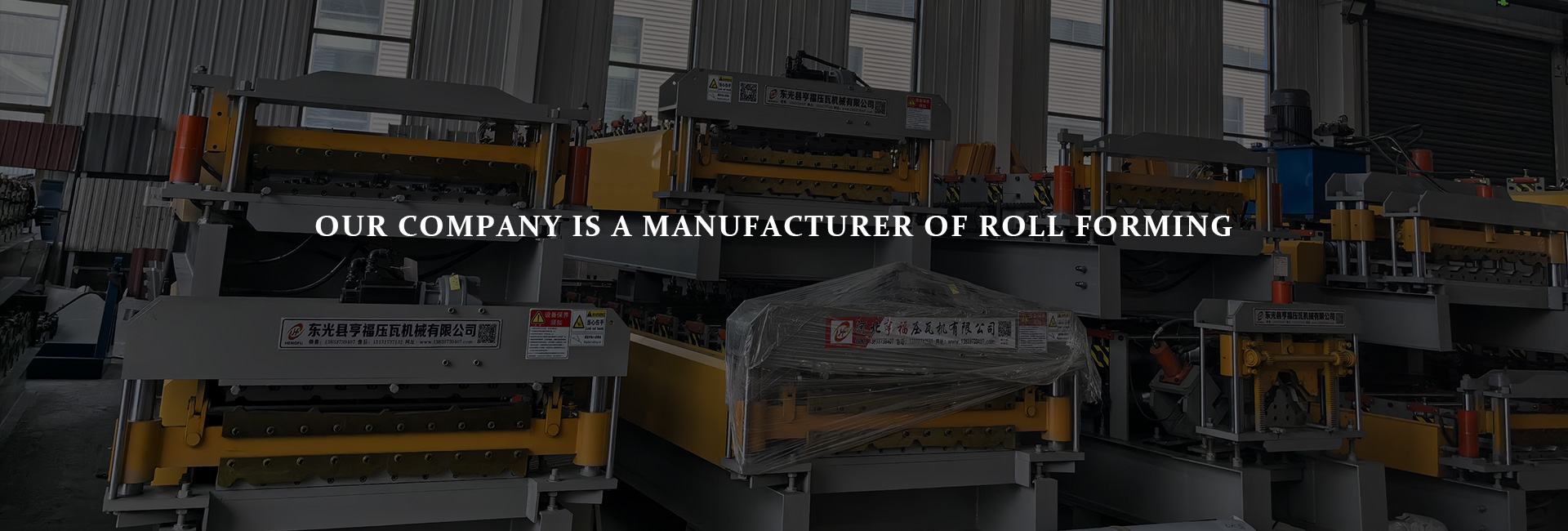Study on the Applicability of Roll Forming Machines with Different Materials
release time:2024-09-22 18:24:30 Views:148frequency
In the construction industry, roll forming machines are indispensable for producing various types of metal roofing tiles and wall panels. As market demands evolve, the materials used for these machines have become increasingly diverse. Different materials offer unique characteristics in terms of performance, durability, and cost-effectiveness. This article will study the applicability of roll forming machines made from different materials, helping companies select the most suitable equipment to enhance production efficiency and economic benefits.

I. Common Materials for Roll Forming Machines and Their Characteristics
1. Carbon Steel
Characteristics: Carbon steel machines are known for their good strength and toughness, making them widely used in the production of standard construction materials. Carbon steel is relatively affordable, offering good cost-effectiveness.
Applicability: Suitable for producing general metal roofing tiles and wall panels, ideal for small to medium-sized businesses and low-budget projects. However, carbon steel has poor corrosion resistance and is more suited for dry environments, requiring regular maintenance and rust prevention.
2. Stainless Steel
Characteristics: Stainless steel roll forming machines have excellent corrosion and wear resistance, allowing them to operate reliably in harsh environments. Although the initial cost is high, the long service life and low maintenance requirements help reduce overall operational costs.
Applicability: Ideal for environments requiring high corrosion resistance, such as coastal areas or regions with significant industrial pollution. Suitable for producing high-end metal roofing and wall panels, meeting high construction standards.
3. Alloy Steel
Characteristics: Alloy steel is strengthened by adding elements such as chromium, nickel, and molybdenum, which enhance its strength, hardness, and wear resistance. It also performs well under high temperatures, making it suitable for heavy-duty operations.
Applicability: Ideal for producing high-strength, wear-resistant building materials, commonly used in heavy industry and large-scale construction projects. The high strength and wear resistance of alloy steel make it perfect for operations requiring high load and long runtime.
4. Aluminum Alloy
Characteristics: Aluminum alloy roll forming machines offer excellent corrosion resistance and are lightweight, though they have relatively lower strength and wear resistance. They are easy to process, making them suitable for precision manufacturing and lightweight product production.
Applicability: Ideal for producing lightweight metal roofing and decorative wall panels, especially in construction projects where weight and corrosion resistance are crucial. Aluminum alloy machines are often used in high-end residential and commercial buildings.
II. How to Choose the Right Roll Forming Machine Material
When selecting the right material for a roll forming machine, consider the following factors:
1. Production Needs: Choose the material based on the type and requirements of the metal tiles or wall panels being produced. For example, if high-strength materials are needed, alloy steel is a good option. If corrosion resistance is a priority, stainless steel may be a better choice.
2. Environmental Factors: Consider the humidity, temperature, and potential corrosive elements in the production environment. Stainless steel or aluminum alloy is more suitable for high-humidity or corrosive environments.
3. Budget: The cost of roll forming machines varies significantly based on material. Companies should select the most cost-effective machine within their budget, while also considering long-term maintenance costs.
4. Maintenance Costs: Different materials have different maintenance requirements during use. Highly wear-resistant and corrosion-resistant materials can reduce the frequency and cost of maintenance, though they may involve higher initial investment.
III. Conclusion
The material of a roll forming machine directly affects its applicability and production efficiency. Carbon steel, stainless steel, alloy steel, and aluminum alloy each have unique characteristics and suitable scenarios. When choosing a roll forming machine, companies should consider production needs, environmental factors, budget, and maintenance costs to select the most suitable material, enhancing production efficiency and economic benefits. Understanding the pros and cons of different materials will help companies make better-informed decisions, maximizing production goals and long-term profits.
For more advice on choosing the right roll forming machine material or product inquiries, please feel free to contact us. We are here to provide you with professional services and solutions.







